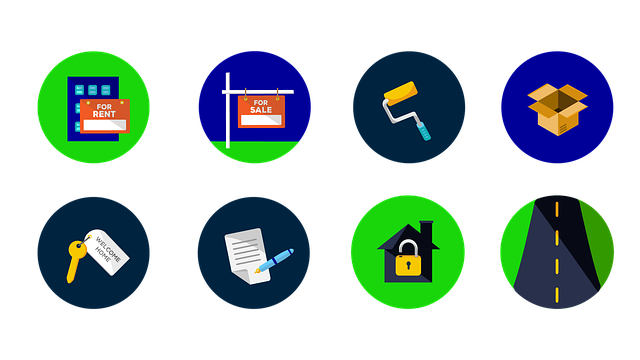Real estate fraud, including identity theft and property scams, poses significant risks leading to financial losses and eroding public trust. Effective mitigation requires comprehensive real estate license checks that verify individuals' credentials, enabling early identification of potential fraudsters and safeguarding transactions. These background checks ensure legitimacy, identify impersonation, and foster transparency, significantly reducing fraud risks for all stakeholders. In the digital era, advanced technology streamlines these checks, offering efficient databases and security features to prevent global scams while staying compliant with industry regulations. Adopting best practices like comprehensive verification and leveraging third-party services is crucial in protecting clients and agents alike.
In the dynamic realm of real estate, fraud poses a significant risk to investors and professionals alike. Understanding common schemes and their impact is paramount in safeguarding transactions. This article delves into the critical role of background checks, specifically focusing on real estate license checks, as a robust defense against fraudulent activities. We explore various types of verifications, benefits of digital platforms for streamlined screening, and best practices to foster safety within the industry, ensuring trust and integrity.
- Understanding Real Estate Fraud: Common Schemes and Their Impact
- The Role of Background Checks in Preventing Fraud
- Types of License Checks for Real Estate Professionals
- Implementing Comprehensive Verification Processes
- Benefits of Digital Platforms for Efficient Screening
- Best Practices for Ensuring Safety in the Real Estate Industry
Understanding Real Estate Fraud: Common Schemes and Their Impact

Real estate fraud is a significant concern in the industry, with various sophisticated schemes targeting unsuspecting buyers and sellers. Common tactics include identity theft, where criminals impersonate legitimate parties to gain access to sensitive information; financial manipulation, such as falsifying documents to secure loans; and property flipping scams, where fraudulent purchases are made with the intent of quick resale for profit. These activities not only cause substantial financial losses but also erode public trust in the market.
One of the most effective ways to mitigate these risks is through comprehensive real estate license checks. By verifying the credentials and background of individuals involved in transactions, potential fraud can be identified early on. This process ensures that those conducting business in the sector are legitimate, thereby safeguarding both property buyers and sellers from becoming victims of fraudulent activities.
The Role of Background Checks in Preventing Fraud

Background checks play a pivotal role in mitigating fraud risks within the real estate industry. By conducting thorough checks on prospective clients, agents, and intermediaries, real estate professionals can safeguard transactions and protect both buyers and sellers from potential scams. These checks include verifying identities, screening for criminal records, and examining financial histories, among other factors.
Real estate license checks are a crucial component of this process, ensuring that individuals operating in the sector possess valid credentials. This not only confirms their legitimacy but also helps identify fraudulent activities like impersonation or unauthorized practice. Through comprehensive background investigations, real estate stakeholders can foster trust, enhance transparency, and significantly reduce the likelihood of fraud, making the industry more secure for all participants.
Types of License Checks for Real Estate Professionals

Real estate license checks are a critical component in safeguarding against fraud and ensuring consumer protection. These background investigations verify the legitimacy and credentials of real estate professionals, including agents, brokers, and appraisers. The process typically involves several key checks:
1. License Verification: This confirms that the individual holds a valid, active license from their respective state regulatory body. It ensures the agent or broker is legally authorized to operate in the region. 2. Criminal Background Checks: These assess any criminal history, providing insights into potential red flags related to integrity and trustworthiness. 3. Education and Certification Evaluations: Verifying academic qualifications and professional certifications ensures the individual possesses the necessary knowledge and skills for their role. 4. Previous Employment Screening: Reviewing past employment records can reveal patterns of conduct, especially in cases of repetitive employment within the industry.
Implementing Comprehensive Verification Processes

In the realm of real estate, where trust and transparency are paramount, implementing comprehensive verification processes acts as a robust shield against fraud risks. Beyond basic background checks, a multifaceted approach is crucial. This involves thorough scrutiny of individuals’ credentials, including their real estate license checks, to ensure they hold valid and active certifications. By integrating advanced technology and data analytics, these checks can uncover potential red flags or discrepancies that may indicate fraudulent activities.
Moreover, continuous monitoring and regular updates of records are essential components of this safeguard. Real estate market dynamics constantly evolve, necessitating ongoing evaluation of license status, past transactions, and any legal or disciplinary actions against agents or brokers. Such diligent practices foster an environment of integrity, assuring clients and stakeholders that their interests remain protected from the intricacies of fraud within the industry.
Benefits of Digital Platforms for Efficient Screening

In today’s digital era, real estate transactions have become increasingly complex, making comprehensive background checks vital to mitigate fraud risks. Digital platforms have revolutionized the way these checks are conducted. Online systems allow for efficient and comprehensive real estate license checks, providing multiple benefits over traditional methods. With just a few clicks, agents, brokers, and investors can access vast databases, ensuring that every party involved is legitimate and trustworthy. This streamlines the onboarding process, saves time, and reduces the chances of fraudulent activities slipping through the cracks.
Moreover, digital platforms offer enhanced security features, including advanced encryption and biometric authentication, which safeguard sensitive data. They also facilitate international screening, enabling global real estate deals to be scrutinized just as rigorously as domestic ones. This technological advancement not only simplifies the background check process but also elevates the standards of integrity within the industry.
Best Practices for Ensuring Safety in the Real Estate Industry

In the dynamic landscape of real estate, safeguarding against fraud is paramount. One of the most effective tools in a professional’s arsenal is thorough background checks, particularly focusing on real estate license checks. These checks ensure that every transaction is legitimate and protect both clients and agents from potential scams. By verifying licenses, qualifications, and any disciplinary actions, brokers and agents can mitigate risks and foster trust.
Best practices for ensuring safety include adopting comprehensive verification processes. This involves employing robust data-gathering methods, utilizing reliable third-party services for background checks, and staying updated on industry regulations. Additionally, maintaining transparent communication with clients and colleagues is key. Sharing verified information openly contributes to a culture of accountability, further bolstering the integrity of the real estate industry.






